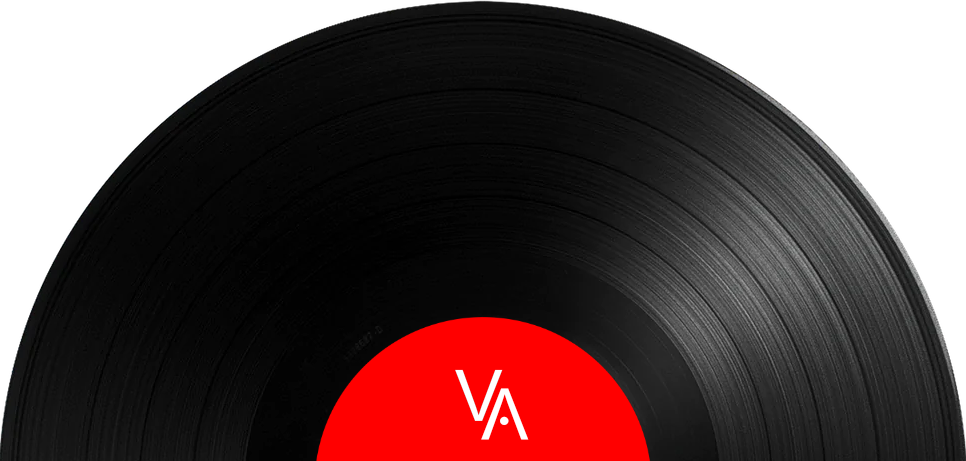The fifth album from them Grateful Dead, American Beauty, was released in November, 1970. It continued the folk-rock style of their previous album, Workingman's Dead, which was issued earlier that year. It peaked at number 30 on the Billboard 200 and was eventually certified gold by the Recording Industry Association of America, later reaching platinum and double platinum certification in 1986 and 2001, respectively. It was ranked at number 258 on Rolling Stone magazine's list of the 500 greatest albums of all time, and later at 261 in a revised list in 2012.
American Beauty featured several songs penned by Jerry Garcia and his lyricist partner Robert Hunter, as well as others contributed by the rest of the band, including Box of Rain, written by bassist Phil Lesh. Operator would be the only song written by Ron "Pigpen" McKernan to appear on a Grateful Dead album. Pigpen would die just a few years later.
During the production of this album it was discovered that the band's manager, Lenny Hart (father of drummer Mickey Hart), had embezzled a sizeable chunk of the band's wealth and blown town.
It was also during the recording of this album that Garcia first collaborated with mandolinist and friend David Grisman. Grisman said he "just bumped into Jerry at a baseball game in Fairfax, and he said, 'Hey, you wanna play on this record we're doing?'" His contributions can be heard on Friend of the Devil and Ripple.
Howard Wales, another outsider, added keyboards to several songs. Drummer Bill Kreutzmann commented that "Wales came to us through Jerry, who played with him in side projects. He had done session work with James Brown and the Four Tops before we brought him in for American Beauty." MIT student Ned Lagin, a jazz pianist who had corresponded with the band after attending their 1969 New Year's Eve concert at the Boston Tea Party, contributed piano to Candyman.
Both Workingman's Dead and American Beauty were, with their beautiful fusion of bluegrass, rock and country music, innovative yet appropriate for their time. Focusing on major key melodies, the record brought into focus the influences other musicians such as Bob Dylan and Crosby, Stills, Nash, & Young had on the band. Kreutzmann stated that, "the singers in our band really learned a lot about harmonizing from Crosby, Stills, Nash & Young," who had just released Déjà Vu, to which Garcia contributed pedal steel, as can be heard on Teach Your Children. It was a scene that cross-pollinated and grew like a hybrid flower, and both bands seemed to benefit from the musical interaction.
David Crosby has stated that Kreutzmann's comment is self-depreciating. "Sometimes they have given us credit for teaching them how to sing and that's not true," he said. "They knew how to sing, they had their own style and they had the most important quality of it down already, which is tale-telling."
American Beauty was released just four months after Workingman's Dead, and the title of the album has something of a double meaning. It refers to the record's musical focus on Americana, but there is also - around the rose depicted on the album's cover - a text ambigram that reads either as the album's title or as American Reality. The back cover is a George Conger photograph of a diorama containing ferns, roses, a bust and some shadowboxes, among other things.
The song Truckin' was released as a single backed with Ripple, and the songs Box of Rain, Sugar Magnolia and Friend of the Devil also received extensive FM radio airplay. It should be noted that the single version of Truckin' is a completely different mix from the LP version and features additional guitar fills, as well as reverb on Weir's vocals and fewer verses. It's also missing Wales's organ contribution. The song, with its reference to Casey Jones driving a train high on cocaine, would become synonymous with the band.
American Beauty peaked at No. 30 on the Billboard's Pop Albums chart, and it was the last album Mickey Hart - who left the band subsequent to the discovery of the theft committed by his father - would appear on until his return to the band four years later, in 1975.
The version in my collection is the Mobile Fidelity reissue, released in 1979. There have been other reissues since then, including an updated 45-RPM reissue from Mobile Fidelity, but this one sounds good enough to me. The sound of this pressing is excellent. Right off the bat the harmonies in Box Of Rain stand out unlike anywhere else I've heard them, and the soundstage is extremely well balanced. I can hear the guitar picks as they strum the strings of Jerry Garcia's Martin D-18 and there is definitely a very warm feel to this record. It is an excellent example of a well-recorded analogue LP, and by "recorded" I am referring to everything, including mastering, production and even the quality of the vinyl used. Friend Of The Devil sounds extraordinary here, although in fairness I'm having trouble recollecting ever hearing sound bad. Then again, this is the only version I'm familiar with, other than maybe when it is playing on a bluetooth speaker while I'm vacuuming - and that's not really listening, is it?
I would rate this LP five stars based solely on how it sounds, but that's too narrow a view. The truth is the Grateful Dead's songs were were really just foundations meant to be built upon in a live setting, and as such they sometimes seem unfinished as actual songs. And the Dead weren't the greatest song writers either, despite the handful of gems that appear here. This is by far their best studio effort, but their best performances of these songs were delivered live.
A beautiful record that should be in every music lover's collection.
The fifth album from them Grateful Dead, American Beauty, was released in November, 1970. It continued the folk-rock style of their previous album, Workingman's Dead, which was issued earlier that year. It peaked at number 30 on the Billboard 200 and was eventually certified gold by the Recording Industry Association of America, later reaching platinum and double platinum certification in 1986 and 2001, respectively. It was ranked at number 258 on Rolling Stone magazine's list of the 500 greatest albums of all time, and later at 261 in a revised list in 2012.
American Beauty featured several songs penned by Jerry Garcia and his lyricist partner Robert Hunter, as well as others contributed by the rest of the band, including Box of Rain, written by bassist Phil Lesh. Operator would be the only song written by Ron "Pigpen" McKernan to appear on a Grateful Dead album. Pigpen would die just a few years later.
During the production of this album it was discovered that the band's manager, Lenny Hart (father of drummer Mickey Hart), had embezzled a sizeable chunk of the band's wealth and blown town.
It was also during the recording of this album that Garcia first collaborated with mandolinist and friend David Grisman. Grisman said he "just bumped into Jerry at a baseball game in Fairfax, and he said, 'Hey, you wanna play on this record we're doing?'" His contributions can be heard on Friend of the Devil and Ripple.
Howard Wales, another outsider, added keyboards to several songs. Drummer Bill Kreutzmann commented that "Wales came to us through Jerry, who played with him in side projects. He had done session work with James Brown and the Four Tops before we brought him in for American Beauty." MIT student Ned Lagin, a jazz pianist who had corresponded with the band after attending their 1969 New Year's Eve concert at the Boston Tea Party, contributed piano to Candyman.
Both Workingman's Dead and American Beauty were, with their beautiful fusion of bluegrass, rock and country music, innovative yet appropriate for their time. Focusing on major key melodies, the record brought into focus the influences other musicians such as Bob Dylan and Crosby, Stills, Nash, & Young had on the band. Kreutzmann stated that, "the singers in our band really learned a lot about harmonizing from Crosby, Stills, Nash & Young," who had just released Déjà Vu, to which Garcia contributed pedal steel, as can be heard on Teach Your Children. It was a scene that cross-pollinated and grew like a hybrid flower, and both bands seemed to benefit from the musical interaction.
David Crosby has stated that Kreutzmann's comment is self-depreciating. "Sometimes they have given us credit for teaching them how to sing and that's not true," he said. "They knew how to sing, they had their own style and they had the most important quality of it down already, which is tale-telling."
American Beauty was released just four months after Workingman's Dead, and the title of the album has something of a double meaning. It refers to the record's musical focus on Americana, but there is also - around the rose depicted on the album's cover - a text ambigram that reads either as the album's title or as American Reality. The back cover is a George Conger photograph of a diorama containing ferns, roses, a bust and some shadowboxes, among other things.
The song Truckin' was released as a single backed with Ripple, and the songs Box of Rain, Sugar Magnolia and Friend of the Devil also received extensive FM radio airplay. It should be noted that the single version of Truckin' is a completely different mix from the LP version and features additional guitar fills, as well as reverb on Weir's vocals and fewer verses. It's also missing Wales's organ contribution. The song, with its reference to Casey Jones driving a train high on cocaine, would become synonymous with the band.
American Beauty peaked at No. 30 on the Billboard's Pop Albums chart, and it was the last album Mickey Hart - who left the band subsequent to the discovery of the theft committed by his father - would appear on until his return to the band four years later, in 1975.
The version in my collection is the Mobile Fidelity reissue, released in 1979. There have been other reissues since then, including an updated 45-RPM reissue from Mobile Fidelity, but this one sounds good enough to me. The sound of this pressing is excellent. Right off the bat the harmonies in Box Of Rain stand out unlike anywhere else I've heard them, and the soundstage is extremely well balanced. I can hear the guitar picks as they strum the strings of Jerry Garcia's Martin D-18 and there is definitely a very warm feel to this record. It is an excellent example of a well-recorded analogue LP, and by "recorded" I am referring to everything, including mastering, production and even the quality of the vinyl used. Friend Of The Devil sounds extraordinary here, although in fairness I'm having trouble recollecting ever hearing sound bad. Then again, this is the only version I'm familiar with, other than maybe when it is playing on a bluetooth speaker while I'm vacuuming - and that's not really listening, is it?
I would rate this LP five stars based solely on how it sounds, but that's too narrow a view. The truth is the Grateful Dead's songs were were really just foundations meant to be built upon in a live setting, and as such they sometimes seem unfinished as actual songs. And the Dead weren't the greatest song writers either, despite the handful of gems that appear here. This is by far their best studio effort, but their best performances of these songs were delivered live.
A beautiful record that should be in every music lover's collection.



